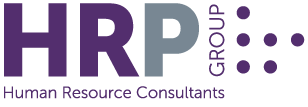With the widespread prevalence of COVID-19 in Ireland, the prompt implementation of Ireland’s vaccination strategy is the only viable way out of this pandemic. Employers need to get to grips with some complex issues that will arise this year as some, but perhaps not all, of their workforce is vaccinated. Some of the key issues that employers are likely to encounter as the vaccination strategy is ramped up and more of the working population become eligible for vaccination. Under the 2005 Act, there is also an obligation on the employee to comply with health and safety regulations in the workplace. For instance, employees must take reasonable care to protect the health and safety of themselves and others and not engage in improper behaviour that will endanger themselves or others.
The employer will be unable to do much about a refusal to vaccinate except continue to implement secondary necessary measures to limit risks posed by Covid-19. For instance, placing increased emphasis on social distancing in the workplace, promoting good hand hygiene or alternate workers shifts as advised throughout the pandemic. Another approach to deal with such refusal could be the updating of internal health and safety policies. For example, the policy could direct that all employees who are vaccinated can return to the workplace, while those who refuse or who are awaiting the vaccination, will be required to work remotely from home for specified period open for review. Such a policy would be technically justified but could risk polarising some of the workforce and lead to internal grievances. Therefore, such policy changes will need to be carefully drafted, reasoned and proportionate. Communication is paramount.
While widespread vaccination of the workforce might be desirable, it is highly unlikely that employers will be able to insist that all their employees are vaccinated. An employer who issues a mandatory instruction to an employee to be vaccinated is in unchartered waters and could be exposed to legal claims and employee relations issues therefore under the Irish Constitution, there is a fundamental personal right to bodily integrity. There is currently no indication that the government plan to legislate for mandatory vaccination. In the absence of legislative air cover, employers who insist their employees are vaccinated are potentially exposed if some of those employees refuse to comply with their employer’s instruction and suffer adverse consequences as a result.
The Employment Equality Acts 1998 – 2015 provide for protection from discrimination on nine protected grounds, including on the grounds of disability, religion, and age. A disability (which is very widely defined) may preclude an employee from receiving the vaccine or inform their reasons for refusing it. Any requirement by an employer that an employee receive the vaccine could amount to discrimination on the grounds of disability. Likewise, a requirement that an employee is vaccinated could also constitute discrimination on religious grounds, where an unwillingness to have the vaccine stems from an employee’s religious belief. Finally, as most younger employees will only become eligible for vaccination at the latter stages of the national vaccination strategy, the imposition of a mandatory requirement to be vaccinated could constitute age discrimination.
It can be expected that employers will seek to rely on health and safety grounds as justification for strongly advocating their employees should be vaccinated. Under the Safety, Health and Welfare at Work Act 2005 an employer is obliged to identify and reduce workplace health and safety risks and employees have a duty to cooperate in this regard with their employer. Employers will therefore need to update their risk assessments as the COVID-19 vaccines become more widely available and have a contingency plan in place for a scenario where some but not all their workforce are vaccinated. That said, we see no issue with employers actively encouraging employees to be vaccinated on the basis that doing so reduces health and safety risks at work. It is anticipated that in due course the Health & Safety Authority will publish guidance for employers on COVID-19 vaccinations and this guidance will likely inform the approach employers take when it comes to communicating their corporate position on vaccinations in the workplace.
While the roll-out of the vaccine throughout the working population will take some time, every employer is at some point in time this year going to have to consider the impact of the vaccination programme on their employees and the knock-on implications for the safety of their workplace. For that reason, employers would be well advised to start planning now and, at a minimum, prepare a checklist list of issues that need to be considered and decisions that need to be taken. It should also be borne in mind that the vaccination programme is unlikely to be a one-off event and booster doses will likely be needed to be received at periodic intervals in the future. Employers should therefore plan for vaccination programmes becoming a regular feature of the working year.
Further advice and guidance on this can be sought from your HRP Group HR contact or email info@hrpgroup.ie for further information.
